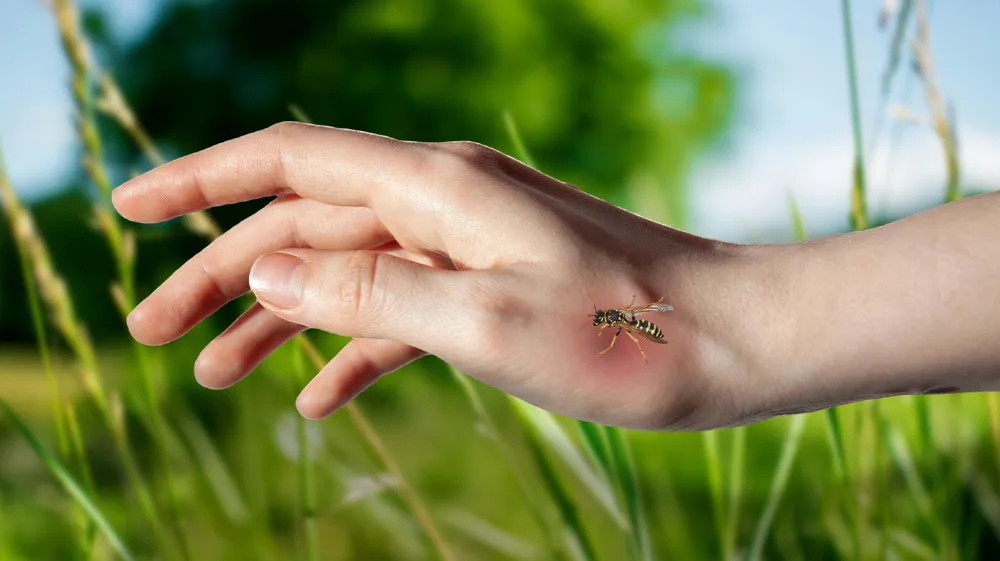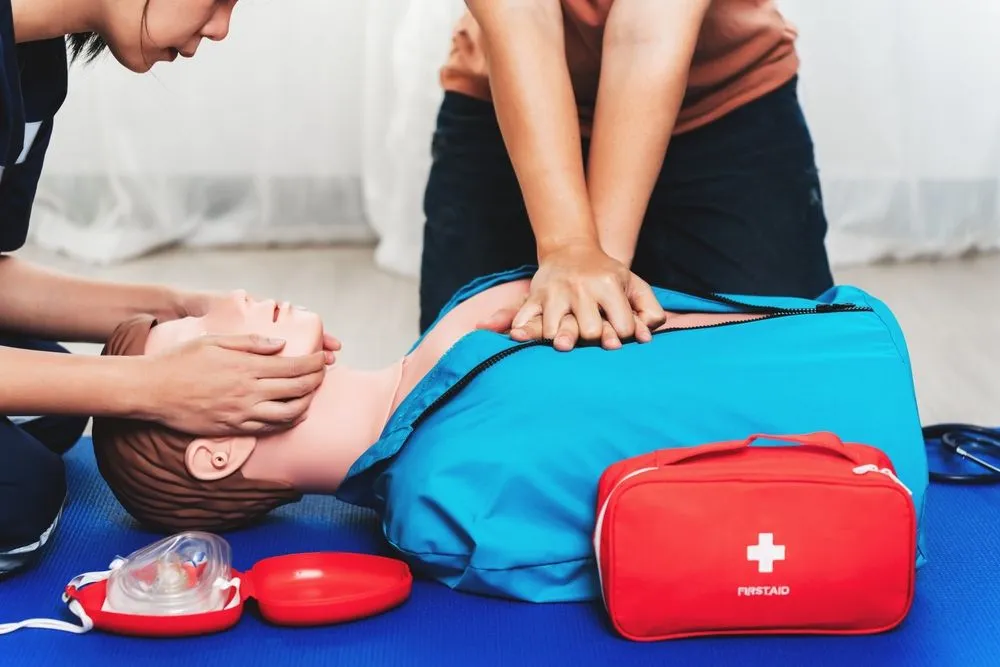Outdoor celebrations and activities like relaxing on your patio can quickly be disrupted if there are wasps around because these stingers are not only a hassle to deal with and can pose a major threat to someone who has wasp allergies or to people with sensitive skin conditions and weaker immune responses. Our aim is to provide the necessary information alongside practical tools for protecting you from wasps so you can safely use your outdoor spaces for your summer barbeques and picnics.
How to Identify Wasps and Understand Their Behavior
Paper Wasps
Paper wasps form an umbrella-shaped nest commonly found under eaves, decks, or in sheltered spaces, these wasps tend to be less aggressive as opposed to yellow jackets or hornets. However, if they sense danger they will sting immediately. It’s best not to provoke them. These wasps are fascinating to look at, but best left alone if you encounter them.
Understanding the behavior of these wasps is key to effective control. They are usually attracted to food sources, especially sweets and proteins, and they have the tendency to become territorial, and aggressive if their nest is threatened.
Prevention is Key: Keeping Wasps Away
The ideal way to deal with wasps is to prevent them from becoming a problem in the first place. Here are some measures you can take to ensure you do not encounter wasps:
- Food Management: Keep food covered, especially when eating outdoors. Clean up spills and crumbs promptly, and ensure garbage cans are tightly sealed. You don’t want your BBQ to turn into a buffet for wasps!
- Yard Maintenance: Eliminate potential nesting sites by trimming bushes, filling holes in the ground, and removing fallen fruit. A well-kept yard is less inviting to wasps.
- Sealing Entry Points: Inspect your home for cracks and openings; seal them to prevent wasps from building nests inside walls or attics. Check your eaves and vents – they can be prime real estate for wasps!
- Landscaping Tips: While not a foolproof solution, some people believe certain plants like citronella or mint may deter wasps. A bit of trial and error can go a long way in keeping your outdoor spaces enjoyable.
When to Call a Professional: Expert Help is Essential
For larger nests or those nests that are not easy to reach like the ones built in elevated spots, it’s crucial to call a professional pest control service. They have the expertise and right equipment needed to handle wasps safely and effectively. If you have allergies or experience repeated infestations, seeking professional help is even more essential to ensure safety.
Symptoms of a Wasp Sting
- Sharp pain and burning
- Redness and swelling
- Itching and irritation
- Small bump with a white center
- Severe allergic reaction
First Aid for Wasp Stings: Immediate Actions to Take
Wasp stings can occur unexpectedly. Here are the recommended immediate actions:
Immediate Steps
If the stinger is visible, do not pinch it, pinching it will release more venom try scraping it away with a credit card or other flat object. Wash the area where you were stung with soap and clean water, then apply a cold compress to alleviate swelling.
Pain Relief
Over-the-counter pain relievers and antihistamines may help manage pain and itching. Keeping a first aid kit handy is always a good idea for summer activities.
Allergic Reactions
Seek immediate medical attention if you experience signs of a severe allergic reaction (anaphylaxis), such as shortness of breath, hives, swollen face, or dizziness. Time is of the essence in these situations.

Want to learn more about Wasp Sting Treatment? Our First Aid courses offer complete training to help you handle critical situations. Whether you want to improve your skills or workplace safety, these courses help build confidence and expertise. View our Emergency First Aid at Work (EFAW) and Level 3 First Aid at Work courses. These courses meet the UK legal requirements and help you keep people safe.
Debunking Myths about Wasps: Separating Fact from Fiction
Many misconceptions exist regarding wasps. For instance, while they seem attracted to sweet scents, it’s usually food that is decaying that draws them in. Additionally, swatting away at a wasp is a recipe for danger. It will provoke a sting. The solution is to calmly move away. It’s always best to remain calm when surrounded by wasps.
What to Do If Complications Occur
In rare cases, wasp stings can lead to severe complications, including:
- Multiple organ failure
- Neurological symptoms, such as seizures
- Cardiovascular symptoms, including palpitations and arrhythmias
If any of these symptoms occur right after an encounter with a wasp, seek immediate medical assistance.
First Aid Kit that Caters to Insect Bites
For those who enjoy outdoor activities, having a first aid kit that includes items to help and prevent insect bites is imperative. Your first aid kit should include an EpiPen, ointments for pain relief, allergy medication, and a cold pack for swelling.
Conclusion
Understanding wasp behaviour is key along with knowing exactly when to call for professional help, you can effectively manage wasp-related issues and enjoy outdoor spaces without concern. Wasp stings can pose a serious threat, especially if you have allergies or other conditions like autoimmune diseases. It is crucial to keep an eye on symptoms and seek immediate medical help if they don’t dissipate after first aid. Also, it’s wise for those with asthma or allergies to always carry an EpiPen. Enjoy the summer sun while staying vigilant!




